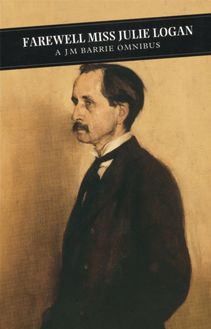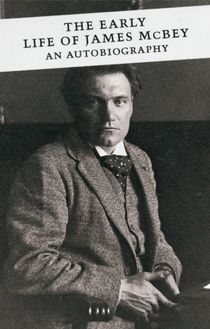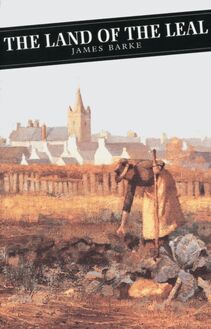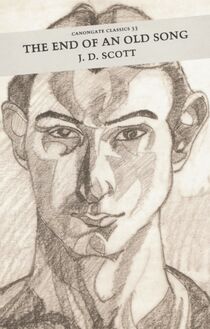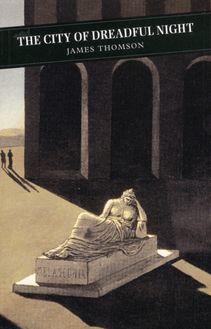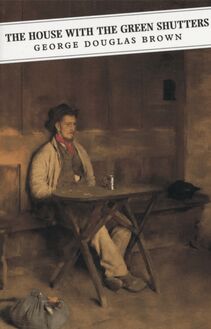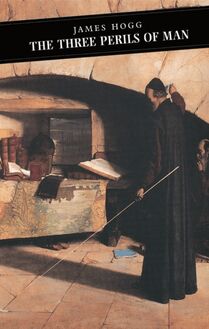Watcher by the Threshold , livre ebook
241
pages
English
Ebooks
2010
Vous pourrez modifier la taille du texte de cet ouvrage
Obtenez un accès à la bibliothèque pour le consulter en ligne En savoir plus
Découvre YouScribe en t'inscrivant gratuitement
Découvre YouScribe en t'inscrivant gratuitement
241
pages
English
Ebooks
2010
Vous pourrez modifier la taille du texte de cet ouvrage
Obtenez un accès à la bibliothèque pour le consulter en ligne En savoir plus
Publié par
Date de parution
01 juillet 2010
Nombre de lectures
2
EAN13
9781847675729
Langue
English
Publié par
Date de parution
01 juillet 2010
Nombre de lectures
2
EAN13
9781847675729
Langue
English
JOHN BUCHAN
The Watcher by the Threshold
Shorter Scottish Fiction
EDITED BY
ANDREW LOWNIE
Contents
Introduction
On Cademuir Hill
Afternoon
An Individualist
A Journey of Little Profit
Politics and the May-Fly
The Herd of Standlan
Streams of Water in the South
At the Article of Death
At the Rising of the Waters
Prester John
The Moor Song
A Reputation
Comedy in the Full Moon
The Earlier Affection
The Black Fishers
Summer Weather
The Oasis in the Snow
Gideon Scott
No-Man’s Land
The Far Islands
The Watcher by the Threshold
Fountainblue
The Outgoing of the Tide
The Knees of the Gods
The Green Glen
The Riding of Ninemileburn
Watches of the Night
The Frying-pan and the Fire
Skule Skerry
Glossary
Selected John Buchan Reading List
Introduction
In popular imagination John Buchan is generally remembered as the author of a series of thrillers that centre around English country houses and London Clubs, an old-fashioned, misogynistic, snobbish and anti-Semitic writer primarily concerned with the British Empire and Establishment. The reality, as is gradually being recognised, is quite different. His thrillers are more sophisticated, profound, ambivalent, better-written and with a greater width of literary reference than their reputation might suggest, and in any case constitute only a fraction of his writing output, which included historical novels, film scripts, comic romances, military history, a legal text book, children’s books, biographies, poetry, essays, hundreds of articles and – a particular love – short stories.
Writing to his school and university friend Charles Dick in January 1900, he claimed that ‘to a person of my habits the short story is the real form’. By December 1912 The Bookman , in a profile of the thirty-seven-year-old writer, was arguing he was ‘probably the best modern exponent of the short story’ and noting he made ‘the short story what a cameo might be when it is cut by the hand of a master’. Buchan wrote about sixty short stories and the majority of them were published in four collections – Grey Weather (1899), The Watcher by the Threshold (1902), The Moon Endureth (1912) and The Runagates Club (1928). The exceptions were some stories in Scholar Gipsies (1896), in various interwar Nelson Annuals, in the Scottish Mountain eering Club Journal and some unpublished stories, recently discovered in his private papers. His first published short story, ‘On Cademuir Hill’, appeared in the Glasgow Uni versity Magazine in December 1894 when he was still a teenager and soon, having secured the services of a literary agent, he was publishing stories on a regular basis not just in British papers such as Macmillan’s Magazine, Chambers and Blackwoods but also in American journals such as The Living Age . This meant that relatively quickly he found he could support himself from his writing and he soon learnt the importance of a transatlantic appeal.
Another myth, that needs to be scotched, is that Buchan, though born in Perth, should not really be classified as a Scottish writer. What is increasingly becoming clear is that Buchan’s interests, both in his life and his writing, remained predominantly Scottish and he deserves to be remembered in the same way as Sir Walter Scott and Robert Louis Stevenson – who were themselves great literary influences on him – as a writer who found fame throughout the world but who drew much of his own inspiration from the country of his birth and especially from its literature, religion and topography. Nowhere is this clearer than in his short stories, half of which are set in Scotland, and which, as can be seen in the following selection, reveal him to be as interested in moorland as Clubland heroes. The stories here largely revolve around the lives of Border shepherds, poachers, gamekeepers and drovers and rely heavily on the use of local dialects. Indeed one of Buchan’s great literary gifts in his novels, as well as short stories, was to capture the different forms of Scottish idiom. His Scots stories are unsentimental and largely about temptation, death and retribution and the role played in people’s lives by religion, drink or the weather. They are a far cry from either the Kailyard or the adventures of Richard Hannay or Sir Edward Leithen.
It is certainly true that after Hutchesons’ Grammar School and Glasgow University, Buchan, like many ambitious Scots before him, headed south and never again lived in Scotland, but the case can easily be made that he retained his love of Scotland and that the country deeply influenced his writing. He regularly visited his parents and siblings, who continued to live in Peebles, and his annual holiday was always spent in Scotland, partly with his family in the Borders and partly staying in the Highlands with friends such as Gerard Craig Sellar on his Ardtornish estate opposite Mull. For twenty years Buchan worked for the Scottish publisher Thomas Nelson and spent some of his time before his marriage in 1907 at their Edinburgh offices. At Nelson he set up a weekly newspaper, The Scottish Review , which was an attempt to create a Scottish version of the Spectator , a return to the tradition of Francis Jeffrey’s Edinburgh Review . In it he did much to promote both a new wave of Scottish writers, such as Neil Munro, and reassess more established writers; for example he published some hitherto unknown verse written by R.L. Stevenson at Edinburgh University.
When he decided to pursue a political career he chose to stand not for a local English constituency but for Scottish ones, first as the candidate for Peebles just before the First World War and then as the Conservative Member of Parliament for the Scottish Universities from 1927 to 1935. Among his ambitions as an MP was to be Secretary of State for Scotland and he took a keen interest in Scottish debates, often to the point where he took a strong independent line from the Conservative Party. It is sometimes suggested, on the strength of some selective quotation from his speeches, that Buchan favoured Scottish Home Rule. This is not true. Culturally he was a Scottish Nationalist, but politically he was an enlightened Unionist, prepared to cloak his own views in rhetoric that would appeal to all the Scottish electorate. He recognised the need to respond positively to the burgeoning Scottish Nationalist Movement and that if Conservatives were to continue to enjoy support in Scotland they needed to be more sympathetic to Scottish aspirations. He genuinely believed in devolving more power to Scotland, partly from a desire to remedy a long-standing grievance and partly from a belief that some Scottish matters could best be dealt with at a local level. But though he was prepared to devolve some power he believed that Scotland’s interests lay within the Union.
One of his major concerns within this political debate was that Scotland was losing her national identity. He argued in one House of Commons debate: ‘In language, literature and art we are losing our idiom, and it seems to many that we are in danger very soon of reaching the point where Scotland will have nothing distinctive to show to the world.’ Both in his public work and his writing he tried to redress the balance. As President of the Scottish History Society he successfully won increased government funding to index and preserve various Scottish Record collections. He served on the Board of the new National Library of Scotland, the committee to preserve the site of the Battle of Bannockburn, as a Governor of Gordonstoun School and was, in an apparent oxymoron, President of the Scottish branch of the English Association. Throughout his life, even when abroad, he regularly addressed Caledonian Clubs, Burns and Stevenson dinners and in 1923 was President of the Sir Walter Scott Club. His appointment as Governor-General of Canada in 1935 owed much to his successful tenure as Lord High Commissioner of the Church of Scotland in 1933 and 1934. When he chose a peerage he initially considered an entirely Scottish title – Buchan of Tweed, Buchan of Tweeddale, Buchan of Fruid or Lord Manorwater – eventually deciding on a combination of his Oxford and Border links with Lord Tweedsmuir of Elsfield.
Much of his writing centres around Scotland. His non-fiction included well-reviewed biographies of Montrose and Sir Walter Scott, histories of the Fifteenth Scottish Division and the Royal Scots Fusiliers, The Kirk in Scotland (1930) and The Massacre of Glencoe (1933). He contributed countless chapters or introductions to books on Scottish subjects: The Scottish Tongue (1924), A History of Peeblesshire (1925), The Face of Scotland (1933), Scots Heraldry (1934), to name a few. Eleven of his novels are either entirely or partly set in Scotland, including his best-known novel, The Thirty-Nine Steps (1915). Even when the action is ostensibly based elsewhere the landscape is unmistakably Scottish in appearance, whether it is the South African terrain of Prester John (1910) or the Canadian wilds of Sick Heart River (1941). Buchan’s Scottish fictional landscape is very much bound by his own upbringing and experiences. His early historical novels – Sir Quixote of the Moors (1895), John Burnet of Barns (1898) and A Lady of Lost Years (1899) – and the more contemporary The Half-Hearted (1900) are set in the Borders; Prester John (1910) and The Free Fishers (1934) draw on his early upbringing on the Fife coast; Huntingtower (1922), Castle Gay (1930) and The Thirty- Nine Steps (1915) are set in a Galloway remembered from student walking holidays, while John Macnab (1925) and parts of The Three Hostages (1924) and Mr Standfast (1918) come from holidays with friends in the Highlands. It is not just places that are Scottish but also the characters. Who can forget the Glasgow grocer Dickson McCunn, the Gorbals Die-Hards, Andrew Amos, Mrs Brisbane-Brown, Lewis Haystoun and Lord Lamanchas as wel
